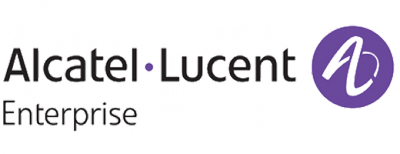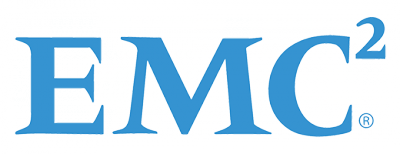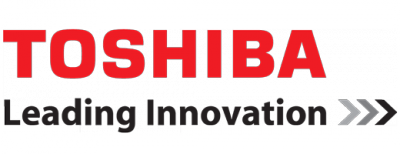SESSIONS AT SYMPOSIUM 2014
In the afternoon of the Symposium, T-Systems Hungary, its main clients and the companies of its partnership ecosystem will be waiting you with lectures by specialists in 12 thematic sessions. This year the individual sessions will focus on solutions that determine corporate competitiveness and operational efficiency, but the technological achievements of T-Systems Hungary and its partners will also be presented in relation to the individual megatrends.
Learn more about our sessions!
Financial Institutions Session
The appearance of new technologies and the complex, constantly changing competition require fast and flexible adaptation, which may be addressed by an adaptive strategy: we do not know who will win the competition of technologies, but if we create the ability of adaptation in the organisation, then we will be able to join the market leading technologies and partners fast. In the thematic session of the Symposium we examine the technological solutions that support decision-makers in the creation of the strategy.
Interview with line director Ákos Kalmár (Financial Institutions)
Interview with line director Ákos Kalmár (Financial Institutions)
What kinds of technological trends do you experience in your specialisation? What will the future bring?
A closer look at the market requirements of the financial institutions will reveal that in general there are two factors that influence banking ICT projects. One of them includes the constant changes, ranging from customer requirements to regulations applicable to the financial sector. These trigger various project demands that are frequently mandatory to satisfy. On the other hand, the prolonged effects of the global economic crisis are still felt and require cost cutting in the interest of maintaining or improving profitability.
Although innovative digital solutions are suitable for promotion, they are frequently applied without a return model, and thus their introduction involves risks. All the more so, since banks are only participant in and do not have the means or power to create the digital ecosystem, and moreover, in addition to financial institutions, the service provider that ensures the digital channel also has customer relationships.
In contrast to ICT solutions and services, these drivers generate two requirements: consolidation in the field of both infrastructure and applications, and the creation of flexible architectures, which enable financial institutions to react faster to the most recent challenges posed by the changing environment.
What effect does ICT have on the services of financial institutions?
The digitalisation of services determine the future of this sector to a major extent. According to various surveys, by 2016 the number of Internet users will increase to 3 billion globally, which will change the method of serving customers. In digital banking, changing requirements and transforming behaviour must be expected of customers, while on the side of technologies, the so-called disruptive technologies will come to the forefront (e.g. digital payment, Big Data, electronic signature). In addition to all these, the cost pressure will also increase and urge developers to come up with newer and newer creative solutions.
According to the forecasts by 2020, 60% of all the bank customer services will be transactions and 40% online sales. The sale of simpler products will be taken from branches and reassigned to the electronic channels. The spread of electronic channels will require simple switch between the channels for the customer and uniform service, as any falter causes frustration and the ultimate loss of customers.
How can one get prepared for facing trend-like changes?
The appearance of new technologies and the complex, constantly changing competition require fast and flexible adaptation, which may be addressed by an adaptive strategy: we do not know who will win the competition of technologies, but if we create the ability of adaptation in the organisation, then we will be able to join the market leading technologies and partners fast. Due to the ever increasing market competition, it is also important to add a competitive spirit to the adaptive strategy. The winners of the next decade may be companies and financial institutions that adopt an adaptive and competitive strategy. The companies engaged in ICT services, including T-Systems Hungary, must rise to the occasion, to these challenges and objectives, must show the way, and, using progressive ideas, must assist companies that are basically not engaged in ICT activities, in this case banks and insurance companies. We have made our best to prepare for the Symposium in this spirit, and harping on these questions right now, in 2014, to bring up topics that offer exciting prospects.
A closer look at the market requirements of the financial institutions will reveal that in general there are two factors that influence banking ICT projects. One of them includes the constant changes, ranging from customer requirements to regulations applicable to the financial sector. These trigger various project demands that are frequently mandatory to satisfy. On the other hand, the prolonged effects of the global economic crisis are still felt and require cost cutting in the interest of maintaining or improving profitability.
Although innovative digital solutions are suitable for promotion, they are frequently applied without a return model, and thus their introduction involves risks. All the more so, since banks are only participant in and do not have the means or power to create the digital ecosystem, and moreover, in addition to financial institutions, the service provider that ensures the digital channel also has customer relationships.
In contrast to ICT solutions and services, these drivers generate two requirements: consolidation in the field of both infrastructure and applications, and the creation of flexible architectures, which enable financial institutions to react faster to the most recent challenges posed by the changing environment.
What effect does ICT have on the services of financial institutions?
The digitalisation of services determine the future of this sector to a major extent. According to various surveys, by 2016 the number of Internet users will increase to 3 billion globally, which will change the method of serving customers. In digital banking, changing requirements and transforming behaviour must be expected of customers, while on the side of technologies, the so-called disruptive technologies will come to the forefront (e.g. digital payment, Big Data, electronic signature). In addition to all these, the cost pressure will also increase and urge developers to come up with newer and newer creative solutions.
According to the forecasts by 2020, 60% of all the bank customer services will be transactions and 40% online sales. The sale of simpler products will be taken from branches and reassigned to the electronic channels. The spread of electronic channels will require simple switch between the channels for the customer and uniform service, as any falter causes frustration and the ultimate loss of customers.
How can one get prepared for facing trend-like changes?
The appearance of new technologies and the complex, constantly changing competition require fast and flexible adaptation, which may be addressed by an adaptive strategy: we do not know who will win the competition of technologies, but if we create the ability of adaptation in the organisation, then we will be able to join the market leading technologies and partners fast. Due to the ever increasing market competition, it is also important to add a competitive spirit to the adaptive strategy. The winners of the next decade may be companies and financial institutions that adopt an adaptive and competitive strategy. The companies engaged in ICT services, including T-Systems Hungary, must rise to the occasion, to these challenges and objectives, must show the way, and, using progressive ideas, must assist companies that are basically not engaged in ICT activities, in this case banks and insurance companies. We have made our best to prepare for the Symposium in this spirit, and harping on these questions right now, in 2014, to bring up topics that offer exciting prospects.
Back
Sympo2014logo

Event Partners
Diamond level partner

Emphasized technological partner

Gold level partners








Emphasized international partner

Silver level partners




Professional partner
Professional partner

Collaborator partners
Collaborator partners


Strategic media partners
Media partners








